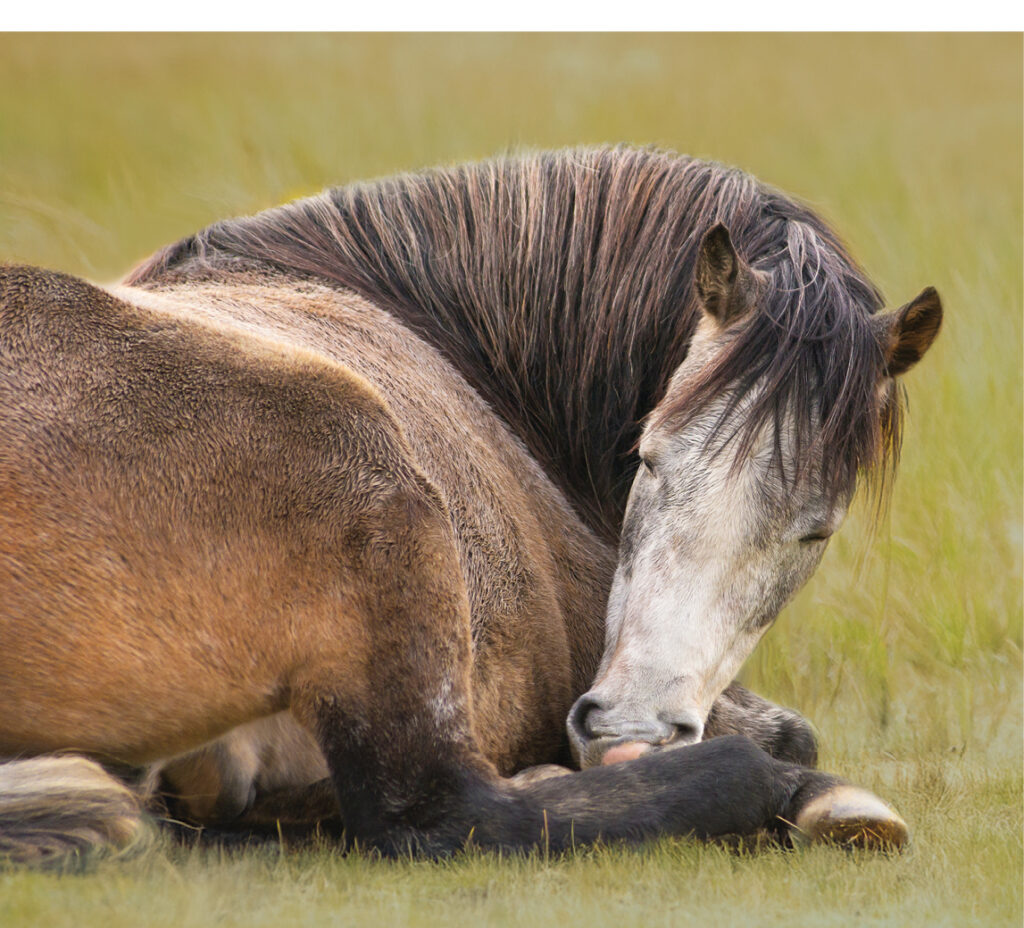Discover the importance of a good night’s sleep for your horse and learn how to ensure he gets the rest he needs both at home and while traveling.
Think about how you feel after a restful night’s sleep – refreshed, alert, and ready to face the day. Now imagine a morning when you’ve had a sleepless night due to noisy neighbors, late-night disturbances, or racing thoughts keeping you awake. Feeling tired, irritable, and wishing you could just stay in bed all day, right?
Well, your horse feels the same way! Sleep is crucial for his overall well-being, just like it is for you. It plays a vital role in maintaining both mental and physical health, allowing the body to recharge and regulate itself without constant environmental stimuli. Without adequate sleep, we all suffer. In fact, sleep deprivation is a well-known tactic used in human torture, emphasizing the importance of ensuring your horse gets the sleep he needs every night.
In this article, we’ll delve into sleep science, understanding how horses sleep, their ideal sleep schedule, and the conditions necessary for healthy sleep. We’ll also provide seven steps to help your horse get the rest he needs, whether at home or on the go.
IS YOUR HORSE SLEEP DEPRIVED?

Sleep Science: The What and Why
Sleep is a physiological state of reduced brain activity that requires a higher stimuli level to awaken compared to being fully awake. Your horse’s brain can take a break from environmental worries when sleeping, unless disturbed by loud noises or bright lights.
There are two types of sleep – non-rapid eye movement (NREM) and rapid eye movement (REM) sleep. NREM has four stages, while REM occurs when your horse is lying down. Horses, as prey animals, have evolved to sleep in short bouts throughout the day, with more quality sleep obtained during the late night hours.
Horses are social sleepers, exhibiting synchronized social sleep behavior even in stall environments. Understanding equine sleep patterns is essential for ensuring your horse gets the rest he needs.
Sleep Deprivation
Signs of sleep deprivation in horses may include trauma marks on the face or sudden collapses when entering REM sleep while standing. Differentiate sleep deprivation from narcolepsy, a rare brain disorder triggered by external stimuli.
Implement the 7 Steps for Better Sleep to ensure your horse’s well-being, including controlling light exposure, minimizing noise disturbances, providing comfortable bedding, adequate space, companionship, optimal temperature, and addressing physical discomforts.
By prioritizing your horse’s sleep needs, you can help him stay mentally and physically strong. Remember, quality sleep is essential for his overall health and happiness.

